
United Nations Security Council resolution 819, adopted unanimously on 16 April 1993, after reaffirming resolutions 713 (1991) and all (1992) subsequent resolutions, the Council expressed concern at the actions of Bosnian Serb paramilitary units in towns and villages in eastern Bosnia and Herzegovina, including attacks on civilians, the United Nations Protection Force and disruption to humanitarian aid convoys. The resolution marked the UN's first civilian "safe area" being declared; it failed to prevent the Srebrenica massacre.
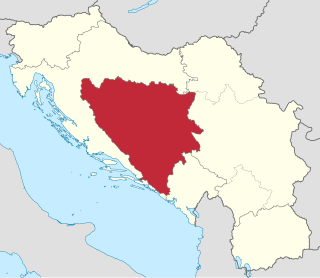
United Nations Security Council resolution 752, adopted unanimously on 15 May 1992, after reaffirming resolutions 713 (1991), 721 (1991), 724 (1991), 727 (1992), 740 (1992) 743 (1992) and 749 (1992), the Council expressed concern at the situation in the Yugoslavia, in particular the fighting in Bosnia and Herzegovina, demanding that all parties end the fighting and respect the ceasefire signed on 12 April 1992.

United Nations Security Council resolution 757 was adopted on 30 May 1992. After reaffirming resolutions 713 (1991), 721 (1991), 724 (1991), 727 (1992), 740 (1992) 743 (1992), 749 (1992) and 752 (1992), the Council condemned the failure of the authorities in the Federal Republic of Yugoslavia to implement Resolution 752.

United Nations Security Council resolution 758, adopted unanimously on 8 June 1992, after reaffirming resolutions 713 (1991), 721 (1991), 724 (1991), 727 (1992), 740 (1992) 743 (1992), 749 (1992), 752 (1992) and 757 (1992), the council, in accordance with a report by the Secretary-General Boutros Boutros-Ghali, decided to enlarge the mandate and strength of the United Nations Protection Force (UNPROFOR) in former Yugoslavia.

United Nations Security Council Resolution 761, adopted unanimously on 29 June 1992, after reaffirming Resolutions 713 (1991), 721 (1991), 724 (1991), 727 (1992), 740 (1992) 743 (1992), 749 (1992), 752 (1992), 757 (1992), 758 (1992) and 760 (1992), the Council authorised the Secretary-General to immediately deploy additional elements of the United Nations Protection Force in Croatia and Bosnia and Herzegovina during the Yugoslav Wars.

United Nations Security Council resolution 762, adopted unanimously on 30 June 1992, after reaffirming resolutions 713 (1991), 721 (1991), 724 (1991), 727 (1992), 740 (1992) 743 (1992), 749 (1992), 752 (1992), 757 (1992), 758 (1992), 760 (1992) and 761 (1992), the Council urged all parties to honour their commitments to the United Nations plan in former Yugoslavia and complete a cessation of hostilities.
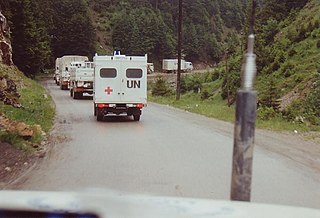
United Nations Security Council resolution 764, adopted unanimously on 13 July 1992, after reaffirming previous resolutions on the topic, the Council noted the violations of the agreement concerning Sarajevo International Airport which established a security corridor and demanded withdrawal of anti-aircraft weapon systems, and decided to authorise an additional deployment of United Nations Protection Force personnel. It would increase the size of the Force to two infantry battalions.

United Nations Security Council resolution 770, adopted on 13 August 1992, after reaffirming previous resolutions on the topic, including Resolution 743 (1992), Resolution 749 (1992), Resolution 761 (1992) and Resolution 764 (1992), the Council recognised the humanitarian situation in Sarajevo and other areas in Bosnia and Herzegovina.

United Nations Security Council resolution 771, adopted unanimously on 13 August 1992, after reaffirming resolutions 713 (1991), 721 (1991), 724 (1991), 727 (1992), 740 (1992), 743 (1992), 749 (1992), 752 (1992), 757 (1992), 758 (1992), 760 (1992), 761 (1992), 762 (1992), 764 (1992), 769 (1992) and 770 (1992), the council expressed concern at and condemned widespread violations of international humanitarian law in the territory of the former Yugoslavia and in particular, Bosnia and Herzegovina.
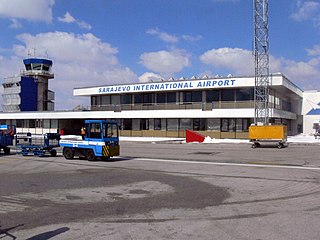
United Nations Security Council Resolution 781 was adopted on 9 October 1992. After reaffirming Resolution 713 (1991) and all the subsequent resolutions on the situation in the former Yugoslavia, the Council decided to impose a ban on military flights in the airspace over Bosnia and Herzegovina, acting in accordance with the provisions set out in Resolution 770 (1992).

United Nations Security Council resolution 787, adopted on 16 November 1992, after reaffirming Resolution 713 (1991) and all subsequent resolutions on the topic, the council called upon the parties in Bosnia and Herzegovina to consider the draft outline constitution as a basis for negotiating a political settlement of the conflict in the country, and went on to impose further international sanctions on the Federal Republic of Yugoslavia.

United Nations Security Council resolution 808, adopted unanimously on 22 February 1993, after reaffirming Resolution 713 (1991) and subsequent resolutions on the situation in former Yugoslavia, including resolutions 764 (1992), 771 (1992) and 780 (1992), the council, after stating its determination to put an end to crimes such as ethnic cleansing and other violations of international humanitarian law, decided that an international tribunal should be established for the prosecution of persons responsible for serious violations of international humanitarian law committed in former Yugoslavia since 1991. This later became known as the International Criminal Tribunal for the former Yugoslavia.

United Nations Security Council resolution 815, adopted unanimously on 30 March 1993, after reaffirming Resolution 743 (1992) and all subsequent relevant resolutions concerning the United Nations Protection Force (UNPROFOR) including 802 (1993) and 807 (1993), the council, acting under Chapter VII of the United Nations Charter, extended UNPROFOR's mandate for an additional interim period ending 30 June 1993.

United Nations Security Council resolution 820, adopted on 17 April 1993, after reaffirming all previous resolutions on the topic for a lasting peace settlement in Bosnia and Herzegovina and the region, the council discussed the peace plan for Bosnia and Herzegovina and comprehensive steps to ensure its implementation.

United Nations Security Council resolution 821, adopted on 28 April 1993, after reaffirming Resolution 713 (1991) and all subsequent resolutions, the council also recalled resolutions 757 (1992), 777 (1992) and General Assembly Resolution 47/1 (1992) which stated that the state formerly known as the Socialist Federal Republic of Yugoslavia had ceased to exist and that it should apply for membership in the United Nations and until then should not participate in the General Assembly.

United Nations Security Council resolution 836 was adopted on 4 June 1993. After reaffirming Resolution 713 (1991) and all subsequent resolutions on the situation in the former Yugoslavia, the Council expressed its alarm at the continuing situation in Bosnia and Herzegovina and decided to expand the mandate of the United Nations Protection Force (UNPROFOR) by allowing it to use force to protect the "safe areas".
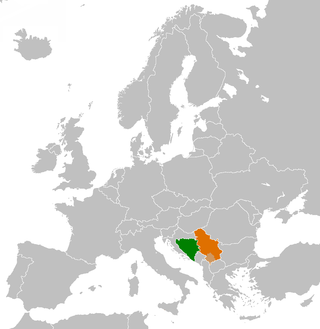
United Nations Security Council resolution 838, adopted unanimously on 10 June 1993, after reaffirming Resolution 713 (1991) and all subsequent resolutions on the situation in the former Yugoslavia and in particular Bosnia and Herzegovina, the Council discussed options for the deployment of international observers on the borders of Bosnia and Herzegovina to ensure implementation of previous Security Council resolutions.

United Nations Security Council resolution 943, adopted on 23 September 1994, after reaffirming all resolutions on the situation in Bosnia and Herzegovina, the Council suspended some restrictions against the Federal Republic of Yugoslavia and discussed the closure of the border between both countries.
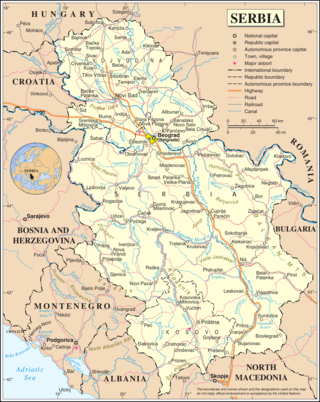
United Nations Security Council resolution 970, adopted on 12 January 1995, after reaffirming all resolutions on the situation in Bosnia and Herzegovina in particular Resolution 943 (1994) concerning the border closure between the Federal Republic of Yugoslavia and Bosnia and Herzegovina, the Council decided that measures in that resolution would be suspended for a further period of 100 days.
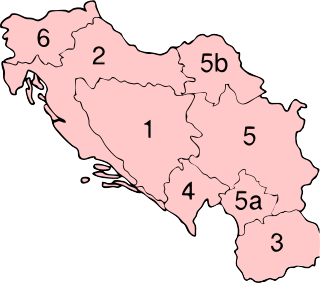
United Nations Security Council resolution 1022, adopted on 22 November 1995, after recalling all resolutions on the conflicts in the former Yugoslavia, the Council suspended measures in previous resolutions related to the former Yugoslavia.


















